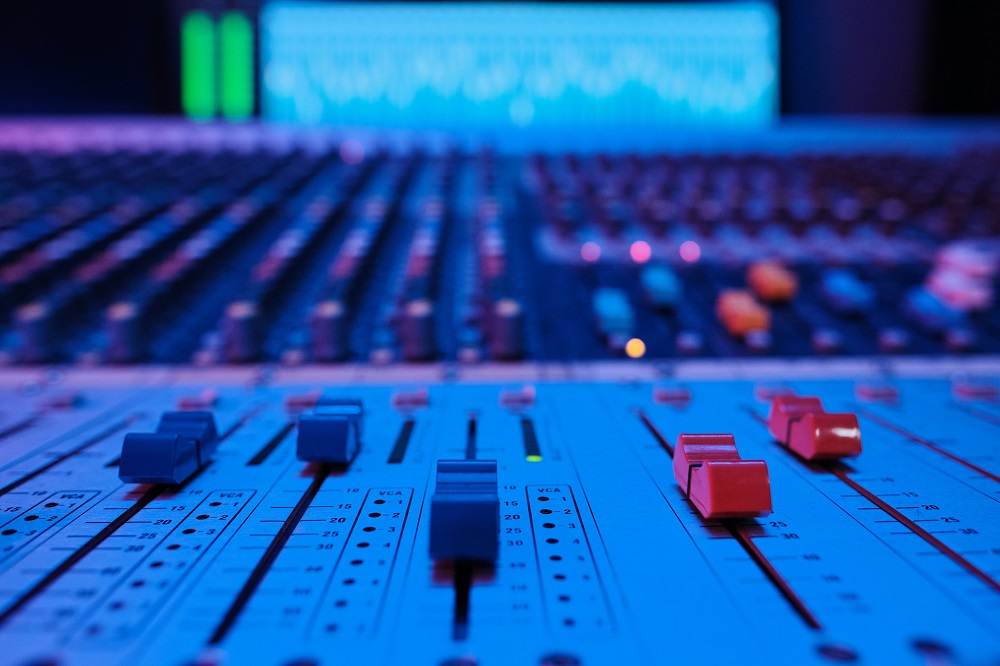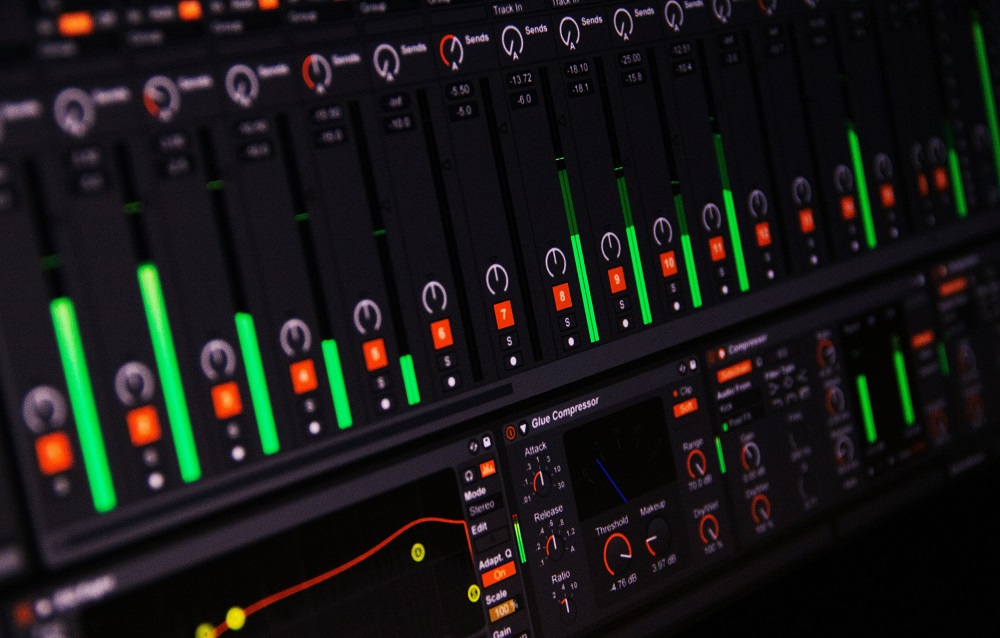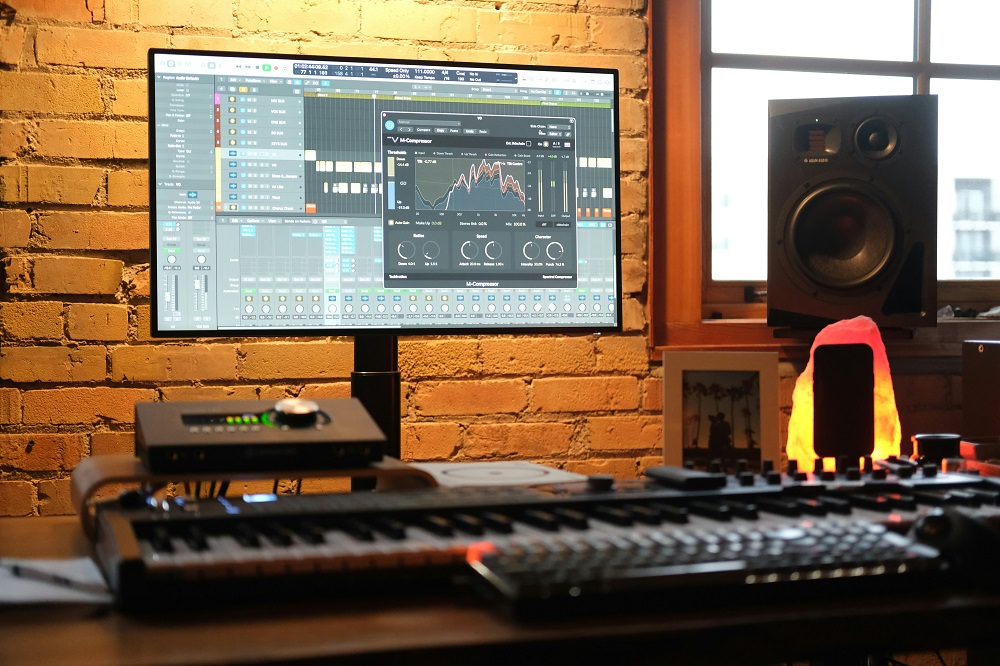Artificial intelligence is more than just a data-driven tool. Today, it is changing the world and industries in unexpected ways. In simplest terms, artificial intelligence (AI) enables enterprises to combine computer science and robust datasets and equip them to discover innovative problem-solving methods. This use of AI has exploded in the past few years and has found a new holding in creative industries like music. When it comes to music consumption, AI is changing the way people interact with music by providing personalized suggestions on platforms like Spotify and Apple Music.
Understanding AI in Music Composition and Production
Today, with generative AI, musicians and songwriters hold the power to generate music in seconds, synthesize sound-alike vocals, and separate elements on the same track. AI is being used as a primarily restorative framework to isolate voices on a recording and intertwine them with noise and piano to create a new composition. At the same time, AI has introduced ethical considerations and has vast implications for not just the music industry but for all. However, there is a huge consideration there, like not having access to your own voice or not being able to control how people use the digital image.
Many streaming platforms are integrating AI-based algorithms to deliver music to their users. This can make discovering new content overwhelming for listeners and impossible for new artists.
AI technology is fostering the creation of songs that genuinely move people. But with the number of songs being churned out using AI, they are only adding to the noise.
AI in Music Production and Composition
Today, generative AI is having a growing impact on text generation, code building, and image creation. But the outcome is not perfect. While it is improving, large language model chatbots like ChatGPT cannot always generate accurate results. A growing number of AI music platforms are emerging, such as Meta’s Audiocraft, OpenAI’s MuseNet, and Soundful, which offer users the ability to compose music quickly and efficiently.
Composing traditional music is a time-consuming process as it requires hours of creativity as well as a comprehensive knowledge of musical theory. But with the advent and growth of generative AI in music production, musicians and composers can leverage the power of algorithms to create music in a fraction of the time.
Generative AI can analyze existing music libraries, identifying patterns, and generating new compositions that are in line with genres. This capability equips composers to explore new musical territories, experiment with different musical concepts, and generate high-quality music at an unprecedented rate. With generative AI, the creative possibilities are endless, which is driving musical innovation beyond limits.
Read more: The Science of Music: How Big Data Is Transforming the Music Industry?
Creating Music with AI
Google and Meta have already jumped on this bandwagon. MusicLM by Google and MusicGen by Meta are represented as experimental AI tools designed to generate melodies from text-based descriptions.
Another significant use of AI in creating music is personalized advertising production. Production companies are integrating AI algorithms to produce music in a range of styles based on information gathered about us individually from choices online. The algorithm then delivers personalized adverts utilizing music styles that can appeal to the audience.
Whether it's a captivating video or an engaging podcast, content creators strive to offer their audience compelling experiences. Background music is a crucial component in producing immersive content. With generative AI, content creators can create, find, and use new background music. The integration of lyrics with AI-generated melodies is making an equally significant impact.
Generative AI can compose original compositions and analyze large lyric databases to identify patterns, rhythms, and narrative techniques. AI algorithms further help in analyzing immense music archives, enabling creators to find the ideal soundtrack that complements and enhances their content. The extent of AI-generated music suggestions based on the content's tone, mood, and cadence helps create a seamless and immersive user experience.

Impact of AI on the Music Industry
Today, artificial intelligence is used all over the music industry. It is enabling musicians and composers to create unique innovations in several areas like music creation, consumption, and discovery. The role of AI in music production and consumption is now being discussed by both supporters and opponents, who are optimistic and pessimistic about the impact of AI technology on human creativity and originality in the music industry.
AI has started contributing greatly to music production, bringing several advantages that allow musicians and producers to become more creative and efficient.
- One of the key benefits of AI music technology is analyzing big data and helping spot patterns and trends in music.
- AI assists in the promotion of songs, audience sentiment analysis, and prediction of market success.
- AI programs like Izotope and LANDR employ AI tech to mix, master, and change the quality of music, providing musicians with high-quality and fast results.
- AI is also impacting the composition and songwriting process by composing original melodies and lyrics based on given music data.
AI-powered tools allow musicians to collaborate with AI and inspire themselves by experimenting with different genres. However, the rapid progress of AI-generated music is raising concerns about the future of music technology and the replacement of human musicians.
The Positive Impact of AI on the Music Industry
The music industry is undergoing a significant shift with the integration of AI in various production processes. However, the key to successfully integrating AI lies in finding the proper balance between technology and human talent. Music producers are using AI to handle different aspects of production, along with a personal touch. This hybrid approach is navigating th industry into a new era of music that leverages the best of both worlds.
Artists are also open to the idea of incorporating AI into their music projects, reflecting a growing trend in which the tools are easily accessible to a wider range of creators. Future predictions suggest that AI is set to claim up to 50% of the music industry market by the year 2030. The AI music generation market alone is growing at an impressive CAGR of 41.89% and is expected to grow to a valuation of $1.10 billion by 2027. This growth is indicative of the transformative power of generative AI solutions in the industry.
Read more: Powering Sustainable Future: Meeting the Energy Demands of Generative AI
Pros of AI in Music Production & Composition
-
Accessibility and Cost Efficiency
One of the more influential advantages of AI in music production is its cost-effectiveness. Traditional recording equipment is prohibitively expensive, but AI software presents a more affordable alternative. This democratizes the music production process, authorizing producers on a budget to achieve professional sounds. Furthermore, royalty-free AI voices also provide unique advantages like cost, scalability, and ease of use. For music producers aiming to diversify their tracks, this is a game-changing tool. They enable them to create, train, and use custom and official artist AI voices, thereby expanding the creative possibilities.
-
Enhancing Creativity
While AI is a tool for cost reduction, it is also a catalyst for creative exploration. By handling some of the technical aspects of music production, like mastering audio tracks, AI enables musicians and artists to focus on the creative side. Musicians are integrating AI to some extent in their music-making process for mastering, generating artwork, or composing.
-
Innovation and Vocal Diversity
With the advent of AI-generated vocals, the music industry is undergoing a transformation. Producers can experiment with a variety of vocal styles and textures that were previously out of reach due to financial constraints. This innovation expands the palette of sounds available to producers and extends the boundaries of what can be achieved musically.

How does AI Affect Music Production?
The foray of AI into music production is not without its detractors. Some are concerned about the implications of synthetic voices on music quality and authenticity. There also lies challenges in gaining the right balance between innovation and efficiency that AI brings along with the emotion conveyed by human performance.
Artificial intelligence is changing music production. While AI is helping to make it more efficient, its impact on the creation of royalty-free music and its underlying challenges raise serious concerns with regard to copyright, creativity, and careers. However, the application of AI in music production is not all good news. Significant challenges also need to be addressed.
Cons of AI in Music Production & Composition
-
Potential Quality Concerns
AI-generated vocals are capable of mimicking human voice with increasing precision, but there still remains a debate over whether the systems can help capture the nuanced expressions of a real singer. AI majorly relies on deep learning to create synthetic speech that mimics the human voice. This lacks the subtle emotional inflections that come naturally to a live performer.
-
Artistic and Ethical Considerations
The use of AI in music production is raising ethical concerns about originality as well as the potential devaluation of human musicianship. The idea that a machine is capable of replicating the creative output of a person is a controversial issue. And this is stirring up concerns about the future role of artists and artistry.
-
Producer Sentiments
Despite the opportunities, not all music producers are in favor of this technological revolution. Many producers have negative perceptions of AI in music production. This demonstrates a level of uncertainty within the industry, further signaling that the full acceptance of AI in music production is a work in progress.
-
Lack of Originality
Another obstacle for generative AI in music production is its limited capacity to infuse compositions with expression. While AI algorithms are great at analyzing patterns, harmonies, and melodies, conveying the nuance of human emotions still remains a difficult task. Music is an art form that evokes profound human emotions and necessitates an intricate comprehension of human experience.
-
Copyright Challenges
The application of AI in the music-making process is raising many concerns related to copyrights, authorship, and ethical aspects of AI-produced music. The issue highlights who is making money from AI-created music when AI algorithms are trained on existing copyright material. Copyright matters concerning AI are on the rise, leading to encouraging the establishment of regulatory regimes to handle these issues. Artists, producers, and regulators are also finding ways of ensuring fair payment, attribution, and creative control.
Read more: Understanding the Power of Behavioral Analytics to Decode User Intent

Future of AI in Music Technology: Will AI Take Over Music Composition?
The integration of AI into music technology has both benefits and drawbacks. As AI technology adapts and advances in music production and technology over time, music stakeholders need to solve intricate copyright, creativity, and ethical issues for the coexistence between AI and human creativity. But with AI becoming a critical part of music technology, experts believe that it will stand a slim chance of completely taking over human musicians because of the human artists' incomparable emotional depth and storytelling.
By functioning, AI in music technology will help speed up the process of song creation and generate music. This is being perceived as a good addition to background music in films or television series. However, the core of music technology and composition will always rely on the human experience, narrative, and emotional connection that AI can find potentially challenging to replicate.
Final Thoughts - AI in Music Production & Composition
There is no doubt that AI is here to stay and will continue to change. The integration of AI in music production presents a plethora of new possibilities for enhancing creativity, reducing costs, and democratizing the music-making revolution. However, it also presents challenges that need to be addressed with care and consideration.
For the music industry, the advent of AI implies adapting to change, embracing innovative tools, and discovering ways to maintain the human element that lies at the heart of great music.
A leading enterprise in Generative AI solutions, SG Analytics focuses on unlocking unparalleled efficiency, customer satisfaction, and innovation for the client with end-to-end AI solutions. Contact us today to harness the immense power of artificial intelligence and set new benchmarks in operational efficiency, customer satisfaction, and revenue generation.
About SG Analytics
SG Analytics (SGA) is an industry-leading global data solutions firm providing data-centric research and contextual analytics services to its clients, including Fortune 500 companies, across BFSI, Technology, Media & Entertainment, and Healthcare sectors. Established in 2007, SG Analytics is a Great Place to Work® (GPTW) certified company with a team of over 1200 employees and a presence across the U.S.A., the UK, Switzerland, Poland, and India.
Apart from being recognized by reputed firms such as Gartner, Everest Group, and ISG, SGA has been featured in the elite Deloitte Technology Fast 50 India 2023 and APAC 2024 High Growth Companies by the Financial Times & Statista.









